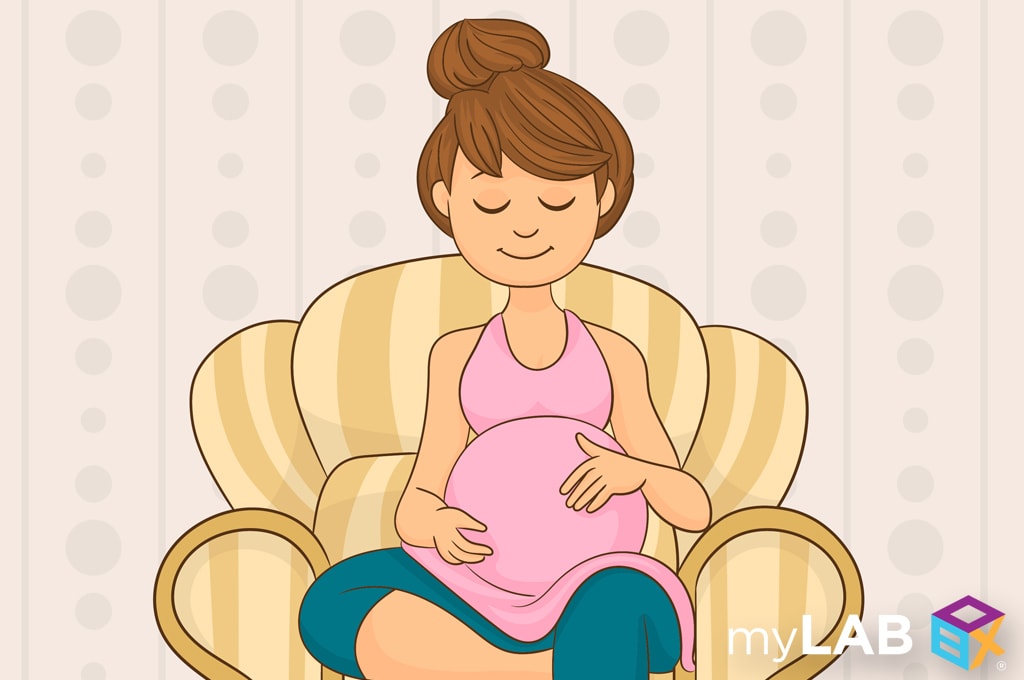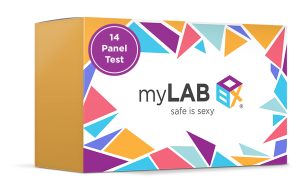I’m Planning On Getting Pregnant, Should I Test For STDs?

At myLAB Box™ we suggest that testing for STDs and STIs, especially after new sexual partners enter your life, is always a good idea. Nevertheless, if you’re planning on getting pregnant and haven’t been tested in a while, then getting tested should be a high priority. You want your child to be safe and well prepared to fight off illnesses in the womb. The good news is that you should receive a full STD screening during your first prenatal doctor’s visit. However, if you have unprotected sex at all during pregnancy, you need to be ready to take subsequent STD and STI screenings. Having an active, untreated STD or STI can cause irreparable damage and even death to children in the womb.
Which STDs are most dangerous?
When it comes to pregnancy, no STDs or STIs are safe for your baby. Depending on the type of infection, different steps are taken and different stages of pregnancy will be affected:
- Gonorrhea: Gonorrhea is one of the most common bacterial STDs and is very dangerous if developed during pregnancy. Some of its symptoms include painful vaginal discharges, painful urination, and discolored discharges. If contracted during pregnancy, risks to the baby include miscarriage, blindness, premature birth, joint infections, and blood infections. Carrying a child to term while infected is extremely dangerous for both the mother and the child.
- HPV: HPV is very common and affects hundreds of thousands of people. If you contract it during pregnancy treatment might not begin until after birth. Symptoms include genital warts that might grow larger than usual due to pregnancy hormones. If warts are too large during birth, a C-section might have to be scheduled.
- Syphilis: Syphilis can be detected with simple blood tests and can be passed to an unborn child extremely easily. It can cause an infection in your child serious enough to become fatal. If left untreated, your child could be born prematurely with irreversible and fatal birth defects.
- Chlamydia: Chlamydia is another fairly common STD that can infect your child and lead to miscarriage. If newborns are exposed to it, they are at high risk of eye infections and developing pneumonia or other lung infections. It’s important to get tested three months after initial treatment to ensure you don’t contract it again.
- HIV/AIDS: With present and modern day medicine, passing on HIV or AIDS to your child has been greatly reduced and relatively controlled. However, there is a chance that your child can contract it and if they do, the results could be catastrophic. Listen to your doctor and receive regular checkups if you are HIV positive.
- Herpes: Herpes poses a relatively low risk to your baby during pregnancy. However, if you have open lesions or a breakout during birth, you may pass it on to your child. Many women with Herpes choose to have a C-section in order to prevent the germs from infecting the newborn child. Even without warts present, herpes may be multiplying for a potential breakout.
- Trichomoniasis: Trich is a bacterial infection that causes painful discharges and often infects the Urinary Tract. It increases the risk of having a preterm baby yet only rarely infects the child. If you know you are, or once were, positive be sure to get retested every three months.
- Hepatitis B: When it comes to Hep B, early testing and vaccines can prevent the infection from ever occurring. However, if left untested or ignored, it passes to the baby about 40% of the time. If the baby does contract it, it is at risk of dying or becoming a lifelong carrier.
To say the least, getting tested for STDs and STIs is extremely important to not only your health but any potential life you plan on growing within your body. At myLAB Box™, we provide you with the testing that you need to make sure you’re ready and safe at any point in your pregnancy. It’s important to stay up to date with your doctor and fully disclose and health risks for you or your baby.
Popular Tests

Total Box
14 Panel STD Test
In Stock – Free Shipping
$369 – $399
